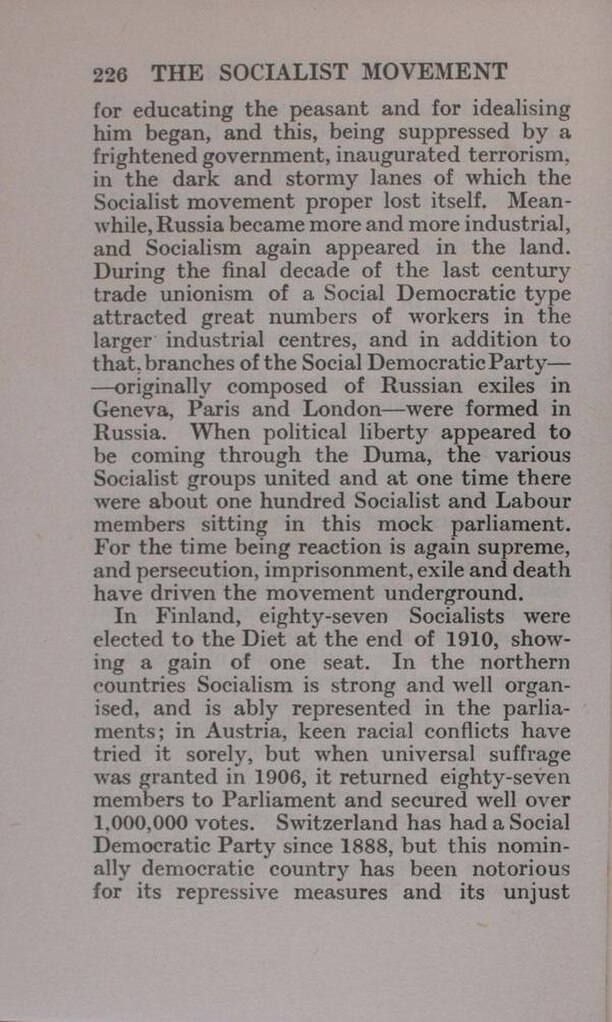for educating the peasant and for idealising him began, and this, being suppressed by a frightened government, inaugurated terrorism, in the dark and stormy lanes of which the Socialist movement proper lost itself. Meanwhile, Russia became more and more industrial, and Socialism again appeared in the land. During the final decade of the last century trade unionism of a Social Democratic type attracted great numbers of workers in the larger industrial centres, and in addition to that branches of the Social Democratic Party—originally composed of Russian exiles in Geneva, Paris and London—were formed in Russia. When political liberty appeared to be coming through the Duma, the various Socialist groups united and at one time there were about one hundred Socialist and Labour members sitting in this mock parliament. For the time being reaction is again supreme, and persecution, imprisonment, exile and death have driven the movement underground.
In Finland, eighty-seven Socialists were elected to the Diet at the end of 1910, showing a gain of one seat. In the northern countries Socialism is strong and well organised, and is ably represented in the parliaments; in Austria, keen racial conflicts have tried it sorely, but when universal suffrage was granted in 1906, it returned eighty-seven members to Parliament and secured well over 1,000,000 votes. Switzerland has had a Social Democratic Party since 1888, but this nominally democratic country has been notorious for its repressive measures and its unjust
